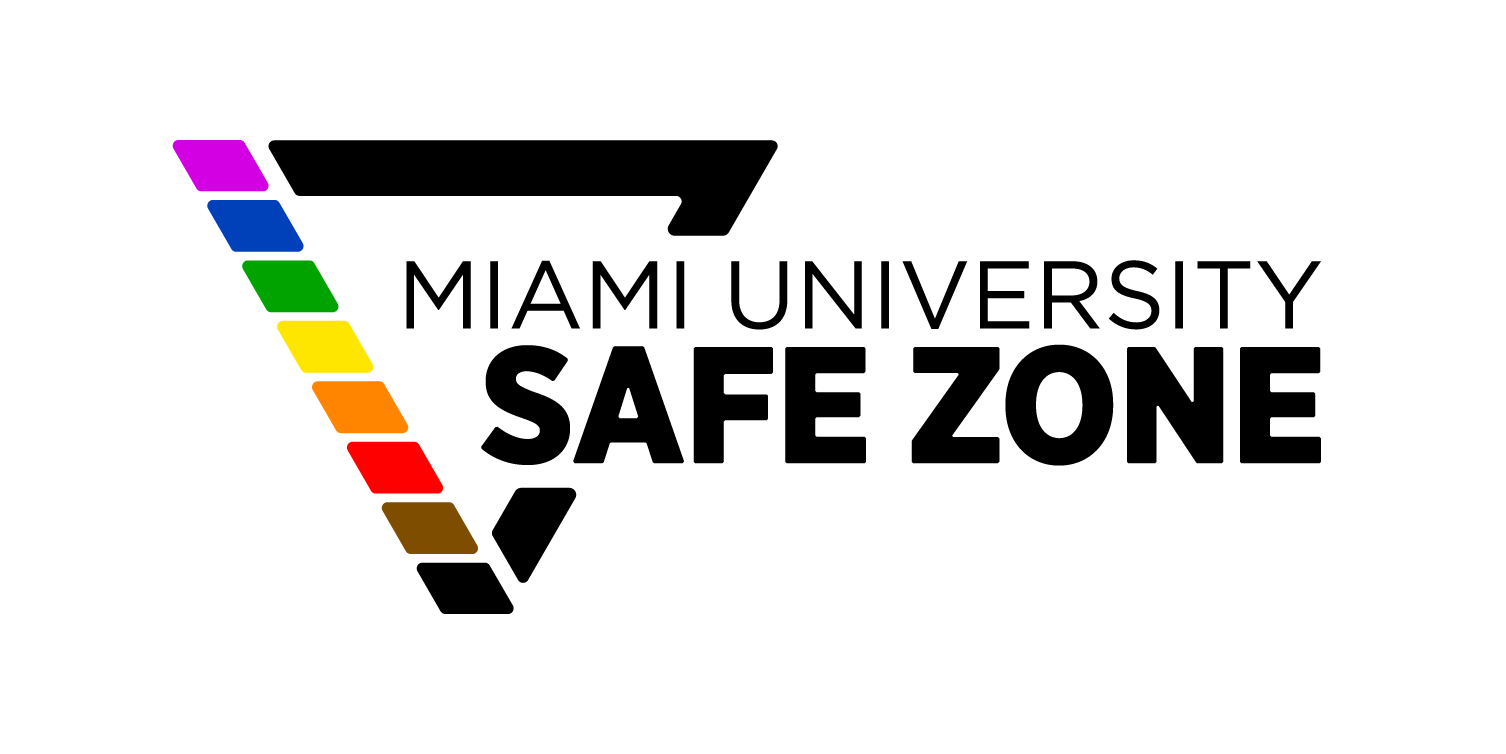Safe Zone Takes off at Miami University

 What does the + stand for in LGBTQ+? How do I ask someone what their pronouns are? What does pansexual mean, and how is it different from bisexual?
What does the + stand for in LGBTQ+? How do I ask someone what their pronouns are? What does pansexual mean, and how is it different from bisexual?
These questions- and many more - are answered during safe zone training. Safe zone is a campus-wide program designed to educate students, faculty, staff, and community members on LGBTQ+ identities and experiences. The goal is to create a community that is inclusive for people of all sexual orientations, gender identities, and gender expressions.
Safe zone training has been offered at Miami since at least 2005. Content has been regularly updated through the years to keep up with changing understandings of gender and sexuality. Since 2005, several thousand students, faculty, and staff have completed the training.
Like many other programs, safe zone was paused after fall of 2019 due to COVID-19 and staffing challenges.
The Center for Student Diversity and Inclusion (CSDI) started offering safe zone training again in August 2021. During the fall 2021 semester, 193 members of the Miami community went through safe zone 101: LGBTQ basics. This training focuses on LGBTQ terminology while also providing basic tips on how to be an ally to the LGBTQ community. The training has been well received, with 90% of participants rating it as excellent or very good.
Along with safe zone 101, the CSDI also offers two follow up trainings: safe zone 201: trans and nonbinary identities, and safezone 301: active allyship. These trainings deepen the knowledge from the initial training, and ask participants to think about specific actions they can carry out in their roles within the Miami community.
Currently, all safe zone training programs are facilitated by April Callis, Ph.D., the associate director of LGBTQ+ initiatives. Callis has been facilitating trainings on sexual orientation and gender identity for the past ten years. She was the lead safe zone facilitator at University of North Carolina at Chapel Hill prior to coming to Miami in 2021. She has also facilitated training for GLSEN Greater Cincinnati, visiting K-12 schools to work with teachers and administrators on inclusive language and practices.
The demand for safe zone is growing at Miami, with 21 trainings scheduled for spring 2022 (compared to 8 in fall 2021). In order to meet this growing demand, six individuals are going through a train the trainer session on January 31 to learn how to facilitate safe zone.
“It’s been really exciting to see the level of interest in safe zone here at Miami,” said Callis. “Every training I facilitate leads to requests from participants to conduct similar trainings for their groups. The demand grew so quickly that I was starting to struggle to meet it. Having additional facilitators is going to allow us to reach so many more members of the Miami community.”
Community members interested in participating in an upcoming safe zone can sign up on the safe zone website. In person and virtual options are being offered this spring. Further, Miami community members can request training for a department or organization by emailing April Callis.

